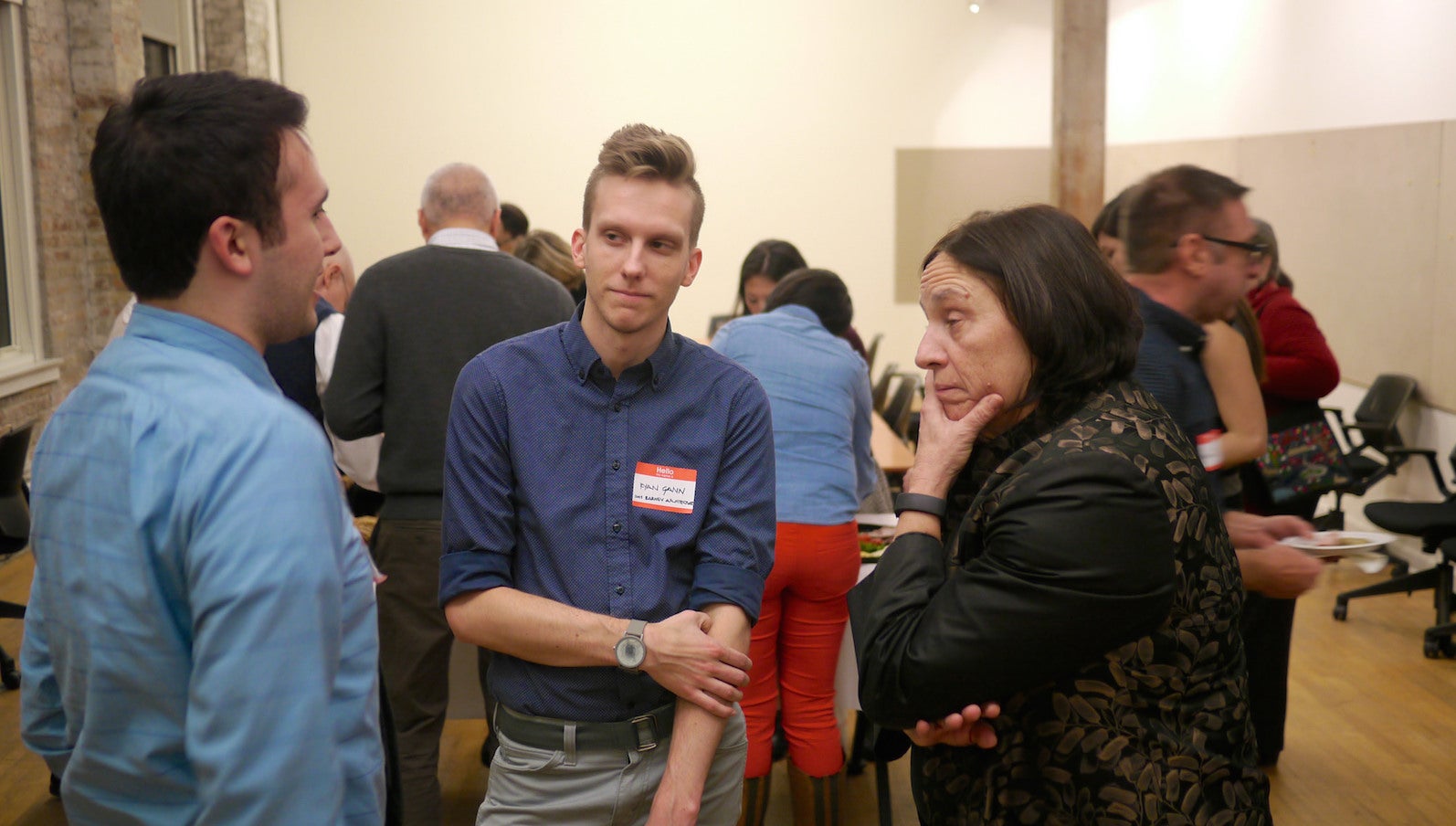Science can help us make better small talk at holiday parties
The holiday season is also a season of small talk. At Christmas parties and visits to our hometowns, we run into friends of friends, former classmates, and long-lost cousins.


The holiday season is also a season of small talk. At Christmas parties and visits to our hometowns, we run into friends of friends, former classmates, and long-lost cousins.
I envy those who are able to navigate these interactions gracefully. I used to be one of them. But now, when I encounter my fellow twenty-somethings, I make the same mistake over and over again.
“So,” I ask, “what are you doing these days?”
The question is always a non-starter.
On the surface, it seems a lot like the dreaded: “So, what are you going to do next year?” Pushy aunts have given the question a bad rap. But I actually found that it was pretty easy to riff on my future when people asked me this question in college. By the time I went home for the holidays my senior year, I had had a few phone interviews with publishing companies and publications, which I happily oversold to anyone who asked about my future.
Halfway into my first year in the “real world,” things have changed. Now when people ask me what I’m up to and how I like living in New York, I find that I don’t have much to say.
It’s not that I’m unhappy with my situation—it’s just that nothing stands out as particularly exciting. I wake up every morning, walk 11 blocks to the subway, and head into work. In the evenings, I go to the gym and head home to cook dinner. Sometimes I meet up with friends to go out to eat. And mostly, I spend my time reading—reading news, books, article pitches, online comments, features, and an endless stream of Tweets.
So now I launch into a monologue intended to lower my conversation partner’s expectations before they start asking if I go to Broadway shows every weekend. “I’m learning a lot. New York is fine. Once you get used to it, it’s the same as living anywhere else.”
Of course, I’m not the only one who struggles with this problem. But I have good news for everyone who dreads making small talk this holiday season: it’s not all our fault we have so much trouble describing our lives. The reason the question “What are you doing these days?” draws such a different response than “What are your plans for next year?” may lie in the way our memories process the future as opposed to the present or the past.
Psychologists who study memory have found that the human brain is better at looking forward than it is at looking back. A group of researchers who studied this phenomenon discovered that this is because we invest more emotion in the future than we do in the past. Imagining upcoming events, such as a long-awaited trip to Hawaii or going to graduate school, they found, produces “greater affect” than reflecting on the present or the past.
For me, it was exciting to speak the future of a media job in New York City into reality. The stakes were low: most of the people who asked me what I was going to do upon graduation were less interested in my answers than they were in avoiding awkward silences. And because of my enthusiasm envisioning the possibilities—investigating crime for the New York Times, say, or reviewing plays for the New Yorker—it produced lively conversation.
Imagining our futures isn’t only enjoyable—it’s also helpful. In a 2011 study, psychologists found that envisioning the future as a series of events, such as starting a new job or going on vacation, improved people’s ability to make good long-term decisions. Subjects were more likely to save money or abstain from eating sweets when they had a fully formed vision of a future in which they were going about their lives, richer and thinner.
In fact, looking forward is a big part of what makes us human. While animals live primarily in the present, the ability to think abstractly about the future is what allows our species to strategize and philosophize.
Chatting about my future when I was in college also gave me the chance to work through the questions of what I really wanted out of my job and the city I chose to live in. I found that I was less interested in imagining a potential job in marketing than I was imagining being a writer, and that while I love my home state of Texas, I was much more invested in envisioning a future in New York City. This proved helpful when it came time for me to move on from college five months later. I had fleshed-out possibilities to compare and contrast, from a job at a media company in Austin to a job at a healthcare consultancy in Boston to a job as a writer in New York. Having talked through the possibilities so many times, I could better identify which of my attachments were lasting and which were passing fads.
Given our natural human preference to project rather than reflect, it’s no wonder asking someone what they are doing “these days” tends to elicit a lackluster response. So this year, rather than asking people what they have been up to this holiday season, I’ll be asking them what they are looking forward to in the year to come.